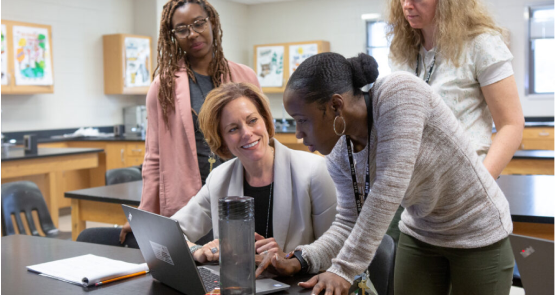
Science Fictions: Low Science Knowledge, Poor Critical Thinking Linked to Conspiracy Beliefs
In the classic TV series Star Trek, the character Spock is beloved for his fidelity to logical reasoning above all else. “It is dangerous,” Spock says, “to be ill-informed about facts.”
The last few years have done nothing to disprove him, particularly when it comes to science. From COVID-19 and climate change, to the growing popularity of outlandish conspiracy theories, a widespread disregard for knowable facts is fueling divisions around the globe, with life-or-death consequences.
In order to better understand the state of science literacy and its impact on our social and political lives, the Reboot Foundation devoted its annual survey to this topic. The result: A concerning lack of basic science literacy among our survey takers; a number of startling connections to beliefs in conspiracy theories; and – helpfully – a shared trust in the power of education to help solve these problems.
Overall Findings
- When it comes to conspiracy theories, 25 percent of the survey participants said they were open to believing at least one of the theories we tested. People who said they rely heavily on social media and informal networks for their information were more likely to believe. Conspiracy believers also tended to be more politically conservative.
- Survey participants who demonstrated higher levels of science literacy and who were exposed to critical thinking education in school were between 26 and 40 percent less likely to believe in conspiracy theories.
- Science literacy was low among our survey takers, but especially among those who said they rely on social media for their news. Meanwhile, trust in mainstream sources of scientific information was mixed.
- Blame for the rise in conspiracy theories was distributed widely, but the leading reason cited was a lack of critical thinking. Most respondents said that better education was the best solution to these problems.
- Polarization appears to be solidifying. We’ve seen a 26-percent drop, since our 2018 survey, in the number of people who said they “seek out people who tend to have different opinions than me to engage in discussion or debate.”
Each year, Reboot takes stock of the public’s attitude towards critical thinking and specific critical thinking practices. This year, as expected, general support for critical thinking remains high. Ninety-three percent of respondents affirm that critical thinking skills are important in today’s world, and, 90 percent say ”courses that develop critical thinking skills should be required in K-12 schools.” Additionally, 89 percent said courses that develop critical thinking skills should be required in college.
How does a society win a war on truth? How can leaders chart a path forward when so many citizens appear allergic to knowable facts and truths?
The Reboot Foundation believes this process must begin with an education that prepares students for the modern media environment and equips them with the skills to understand and evaluate complex concepts in science and technology. Clink the button below to download the full report and learn more.


